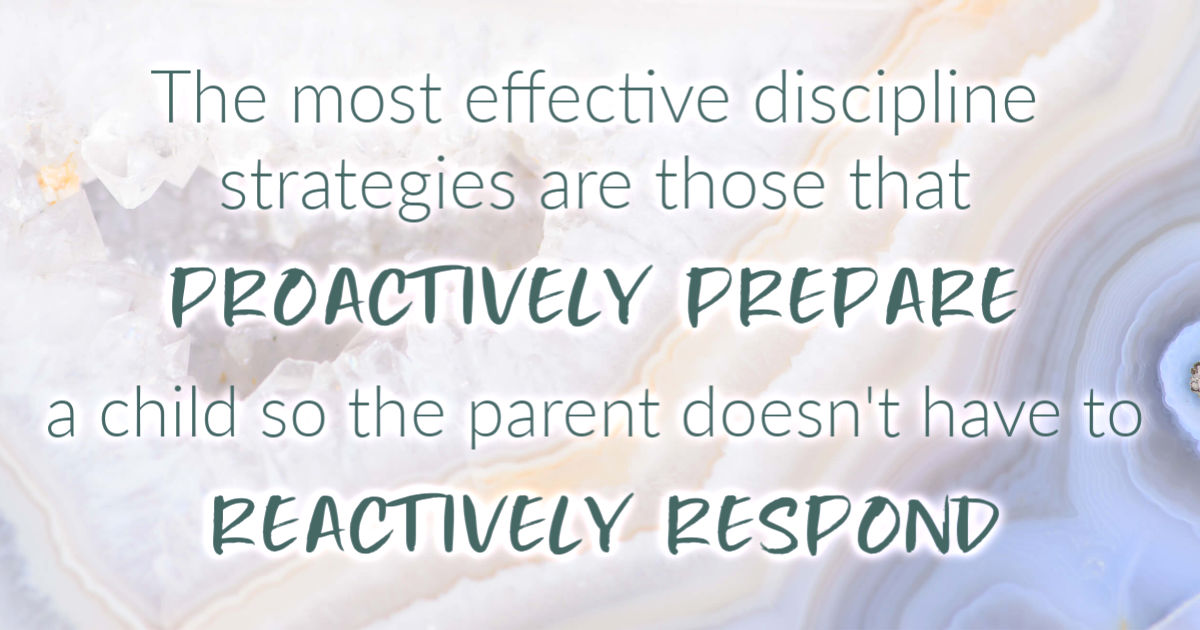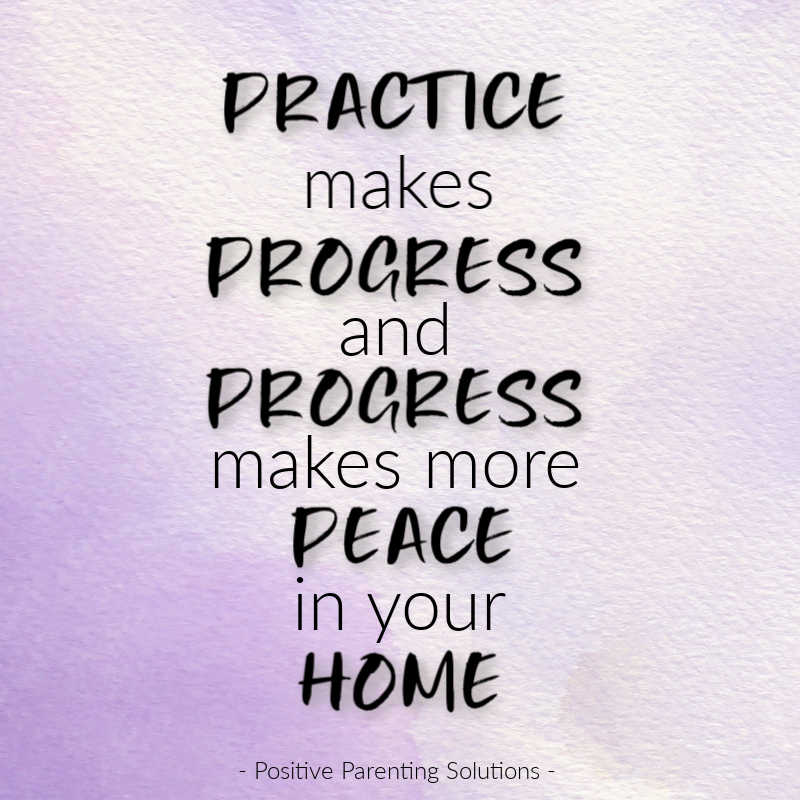How To Discipline Your Child: Top 3 Positive Parenting Techniques

It’s the age-old question, isn’t it? For generations, parents worldwide have debated the most effective parenting methods until their kids had kids and those kids had kids.
What’s worse, the division lines are strong – parents on both sides of the camp dig in their heels insisting THEIR way is the most effective way to raise children. All the while, desperate parents are searching for genuinely helpful solutions that will finally bring peace into their homes.
Should I give my kids rewards?
Or only consequences?
What if my spouse and I discipline differently?
Should I pay my kids to do chores?
The list is endless, my friend. I know how endless it is because I once asked all of these questions and more after I reached my limit. Having gone to bed hoarse nearly every night from reminding, nagging and yes, yelling – while still seeing NO changes in my kids’ behavior – I knew there had to be a better way.
You can learn all about how I got to this place, but let me encourage you, all hope is not lost. I know because I’ve been there – deep in the trenches of parenting seeing no way out. I firmly believe that knowledge is power, and with the right tools, you can become the parent you’ve always dreamed of being. The disciplining wisdom I want to share with you literally changed the trajectory of my family and thousands of others.
The Positive Parenting methods I teach are built on two very firm foundations – Adlerian Psychology and Positive Discipline. Because these tools are rooted in sound science and heavily-researched practices, I can confidently say these tools work for children from toddlers to teens and are effective no matter what circumstances your family may find themselves in.
What is the Goal of Discipline?
Before we discuss the dos and don’ts of parenting, let’s take a moment and consider the goal of discipline.
If I were to ask you about your discipline goals, you’re probably thinking about those goals in terms of typical misbehaviors:
Curb my daughter’s disrespectful attitude.
Put an end to the mealtime battles.
And on, and on, and on….
While each of these goals is completely valid and well-intended, when we pigeonhole our focus onto one or two problems, we miss the point of discipline.
Disciplining, as opposed to punishing, is all about training. It is the idea that we want to guide, instruct, inform, and teach our children HOW to behave instead of punishing them for misbehaving. The goal of discipline isn’t short-sighted or specific to one problem area.
The goal of discipline is a long-term objective.
Think of it this way – if I were to ask you to pick three adjectives you hope will describe your child during adulthood, which words would you pick? Resilient? Respectful? Capable? Self-sufficient? Hard-working? Self-Motivated? Compassionate? Generous?…
When you’re considering a discipline method, ask yourself if that method will guide and instruct your child to be more like the adjectives you chose.
Does yelling at your child teach him how to be respectful to others?
Does spanking your child teach her to show compassion or generosity?
Does paying your child for good grades teach him to be self-motivated?
Does cleaning your child’s room or picking up the toys encourage her to be self-sufficient?
The daily goal of discipline is to have your children learn from their mistakes and not repeat them. Unfortunately, most parents have only been taught short-term solutions.

Consider the ever-popular “time out” tactic of sending kids to their room to “think about what they’ve done.” Do they really “think about what they’ve done and consider other choices?”
Probably not.
Because they are 5.
And they don’t have the processing skills to reflect on what they did wrong and what they could do differently next time.
But they DO have the emotional awareness to know how frustrated they are with mommy or brother or friend.
The problem with time-outs (and counting to three and spanking and taking away privileges) is these punishments fail to teach or train the child the appropriate way to respond in a situation.
Just because a child is told “no” over and over doesn’t mean he inherently understands what behavior would receive a “yes.” Without proper training, kids will keep up the same behaviors despite the punishment.
When you reframe your discipline strategies by considering long-term goals, you can focus on the small training decisions each day that will teach your child how to be a capable, resilient, and respectful adult.
How Do You Discipline Your Child?
As I mentioned before, we often equate the term “discipline” with “punishment.”
“Punish” comes from the Latin root punir, which means “to chastise, take vengeance for, inflict a penalty on, cause pain for some offense.”
But the word “discipline” comes from the Latin word disciplina, which means “to teach, to guide, to instruct.”
That’s the key to correcting our kids’ behaviors – giving them the tools they need to learn an alternative POSITIVE behavior to replace the negative behavior.
When we punish with the intent to have the child “pay” for their mistake, it doesn’t help her learn how to make a better choice next time. Punishment often leads to power contests, and because our kids know poor behavior gets them attention, they’ll keep doing it.
Because these frustrating misbehaviors take up so much of a parent’s energy and patience, they understandably want to know HOW TO RESPOND in the moment. But here’s the problem…if all we do is REACT to parenting problems, we’ll miss the mark (and become completely exhausted.)
The most effective discipline strategies are those that PROACTIVELY PREPARE a child so the parent doesn’t have to REACTIVELY RESPOND.

Successful discipline requires an initial investment up front. But trust me, my friend, your initial investments will have great behavioral payoffs in the long run.
When it comes to knowing how to effectively discipline your child to achieve LONG-TERM results, here are three areas to get you started:
1. Fill the Attention Basket
Kids need attention, plain and simple. If we don’t keep that “attention basket” full of positive attention, kids will seek out any attention they can get – even negative attention. They’ll push our buttons with negative behaviors; because, to a kid, even negative attention is a “deposit” in the attention bucket.
This doesn’t mean you have to be at your child’s side 24/7 – just taking a few minutes a day to spend one-on-one with your child, distraction-free and doing something they want to do, will reap immense rewards in their behavior.
Take 10 minutes once or twice a day with each child and play a game they’ve picked or read their favorite book. Let the phone go to voicemail. Don’t respond to the text. Let the dishes sit in the sink.
When you fill your children’s attention baskets positively and proactively, your kids will become more cooperative and less likely to seek out attention in negative ways.
Life is busy for everyone, and finding extra time in the day may be daunting at first, but think of this as an investment in your relationship with your children and improving their behavior. When it comes to knowing how to discipline your child, giving them what they need to avoid poor behaviors in the first place can have a great impact.
Note: For Positive Parenting Solutions Members, refer to STEP 1 to learn the secrets to easily implementing MIND, BODY AND SOUL TIME® activities in your already too-busy day! Also, see the Ultimate Survival Guide, MBST: Your Secret Weapon for Better Behavior.
2. Take Time for Training
As you think about how to discipline your child, it’s important to remember the root meaning of the word – teach, instruct, guide, inform. The best way to discipline your child is to help her make better choices by teaching her the correct behavior or response.
Role-playing is a great way to do this.
For example, if your child is having trouble sharing and this results in her hitting another child, instead of whisking her away to time-out, diffuse the situation and show her the appropriate way to respond.
“I’d really like to play with that tractor when you’re done.”
Or if your child is throwing a tantrum because they are hungry, give them the appropriate language to use, “I’d like a snack, please.”
And here’s the fun part – switch roles and pretend you’re the child and let your little one direct you through making better choices. And remember, like anything, this will take consistency and repetition. Don’t expect your child to respond appropriately after one round of role-playing. But practice makes progress and progress makes more peace in your home.

Lastly, be encouraging when your kids make the right choices – or even show ANY movement in the right direction. “I see you worked hard to clean up the playroom all on your own! That’s such a big help. I really appreciate it.” or “Thank you for sharing the book with your brother. How kind!”
3. Set Limits and Stick to Them
With the busyness that plagues families today, it can be difficult to be consistent in your daily schedules. But the reality is, kids thrive when they have structure and know their boundaries. When the expectations are clearly communicated in advance, kids have a framework to work within.
This doesn’t mean you need to go overboard with hundreds of rules, but focus on what’s most important for your family. Be clear about the ground rules and what happens when someone breaks the rules – make sure that everyone understands the consequences ahead of time and that the discipline is related to the misbehavior.
If he refuses to adhere to your technology time limits, he loses his technology privileges for the next day or week (depending on the age).
But, making her clean the garage because she didn’t do her homework isn’t related and is therefore not an appropriate consequence.
Above all, be consistent. Follow through every time with the agreed-upon consequence when kids push the rules.
Note: For Positive Parenting Solutions course members, refer to Session 3, Lessons 25 & 26 for everything you need to know about implementing effective consequences in your home.
Final Thoughts
My friend, this parenting ride can feel overwhelming! I hope you’re feeling a little more hopeful as you implement these starter discipline strategies. Unfortunately, I can never get all of the information I’d love to share with you in one little blog, but I’d love for you to continue learning with me!
If you still have discipline questions, I’d be honored if you’d join me for a FREE ONLINE CLASS.
I’ll teach you how to get your kids to listen without nagging, reminding or yelling!
Wishing you all the best on your parenting adventure!
What You Should Do Next:
1. Subscribe to my Newsletter:
Sign up for my newsletter for parenting tips to help you create a happier home and become the parent you always wanted to be. Plus, when you subscribe, I’ll also send you a copy of our strategy-packed guide 10 Tips for Better Behavior – Starting NOW!
2. Register for my FREE 60-Minute Class:
Register for my free class called How to Get Kids to Listen, Without Nagging, Yelling or Losing Control. Classes run several times per week to accommodate your busy schedule.
3. Enroll in my 7-Step Parenting Success System® Course
Enroll now in my proven 7-step system for busy parents ready for change (it’s rated 5 stars on Google). Plus, for a limited time, save $100 on all plans—completely risk-free and with lifetime access.
About the Author
